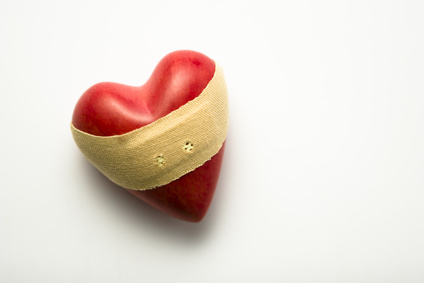What is Forgiveness?
If you have lived in a family for any period of time (anything above an hour or so), you know that  forgiveness is absolutely necessary for a healthy, strong family. In the words of Bryant McGill, “There is no love without forgiveness, and there is no forgiveness without love.” When we choose to not forgive, we find ourselves tied to the past, unable to move forward and weighed down by stones of judgment, bitterness, and resentment that turn to harsh words, angry allegations, and hostile remarks indiscriminately hurled at those around us. Our perspective becomes so clouded and filtered that we can only see those things that confirm our bitterness and resentment. We act in anger, unable to find the compassion, empathy, and intimacy we truly long for. A lack of forgiveness will tear a family apart. Forgiveness is crucial to family unity, intimacy, and even personal health. But what is forgiveness?
forgiveness is absolutely necessary for a healthy, strong family. In the words of Bryant McGill, “There is no love without forgiveness, and there is no forgiveness without love.” When we choose to not forgive, we find ourselves tied to the past, unable to move forward and weighed down by stones of judgment, bitterness, and resentment that turn to harsh words, angry allegations, and hostile remarks indiscriminately hurled at those around us. Our perspective becomes so clouded and filtered that we can only see those things that confirm our bitterness and resentment. We act in anger, unable to find the compassion, empathy, and intimacy we truly long for. A lack of forgiveness will tear a family apart. Forgiveness is crucial to family unity, intimacy, and even personal health. But what is forgiveness?
 forgiveness is absolutely necessary for a healthy, strong family. In the words of Bryant McGill, “There is no love without forgiveness, and there is no forgiveness without love.” When we choose to not forgive, we find ourselves tied to the past, unable to move forward and weighed down by stones of judgment, bitterness, and resentment that turn to harsh words, angry allegations, and hostile remarks indiscriminately hurled at those around us. Our perspective becomes so clouded and filtered that we can only see those things that confirm our bitterness and resentment. We act in anger, unable to find the compassion, empathy, and intimacy we truly long for. A lack of forgiveness will tear a family apart. Forgiveness is crucial to family unity, intimacy, and even personal health. But what is forgiveness?
forgiveness is absolutely necessary for a healthy, strong family. In the words of Bryant McGill, “There is no love without forgiveness, and there is no forgiveness without love.” When we choose to not forgive, we find ourselves tied to the past, unable to move forward and weighed down by stones of judgment, bitterness, and resentment that turn to harsh words, angry allegations, and hostile remarks indiscriminately hurled at those around us. Our perspective becomes so clouded and filtered that we can only see those things that confirm our bitterness and resentment. We act in anger, unable to find the compassion, empathy, and intimacy we truly long for. A lack of forgiveness will tear a family apart. Forgiveness is crucial to family unity, intimacy, and even personal health. But what is forgiveness? Forgiveness is:
…a decision. Forgiveness is a conscious choice. If we do not choose to forgive, resentment will take up residence in our hearts and minds. Sprouts of bitterness will surface in our life. Bitterness will continue to grow and take root unless we choose to actively dig it up and remove it from the garden of our mind. Those roots will extend to indirectly stain the character of many. Think about it. If I allow bitterness to take root and grow in my life, it will choke out compassion, kindness, and love. I will find it difficult to show kindness when I nurse resentment. And, those around me will find it difficult to show kindness to me, a person who constantly responds with biting sarcasm and sharp tones of anger. To root out bitterness and resentment, we must choose to forgive. Forgiveness is a decision, a conscious choice. What do I decide to do?
…to let go of a record of wrongs. Forgiveness is an act of love and grace. Love does not keep a record of wrongs. Forgiveness is the decision to let go of that record of wrong. The unforgiving mind and heart dwells on past hurts and ruminates on possible ways to “get back at” the offender, making them “pay for what they did.” Forgiveness, on the other hand, chooses to dwell on other things. I find it interesting that Scriptures tell us that God forgives our sin and “remembers it no more.” God does not passively forget our sin. Our sins do not “slip His mind.” No, He actively chooses to “remember it no more.” He makes a conscious, loving choice to “let go of our record of wrongs.” He offers us a “free gift” that begins with forgiveness. Forgiveness is a decision to let go of a record of wrongs and…
…and the demand for revenge. There is no question about it—people do sin against us. Family members make hurtful comments. Spouses, children, parents, and siblings become impolite, unkind, rude, and even hurtful from time to time. Truly, wrongs are committed. Justice demands a price, even revenge. The  offending party needs to “pay the price” for their wrong actions and words. But wait…forgiveness recognizes that the other person’s actions have not only hurt me, they have hurt that person as well. Their unkind words come back to haunt them sooner or later. Our sin will find us out and “bite us on the butt.” “What goes around comes around.” This does not mean there are no consequences. We still practice the natural consequence of misbehavior. But, forgiveness deals with the state of our heart…and the state of my heart is no better than the heart of the person who wronged me. Forgiveness recognizes my heart is morally incapable of holding another person guilty of sin when I am so great a sinner myself. Recognizing my own shortcomings allows me to…
offending party needs to “pay the price” for their wrong actions and words. But wait…forgiveness recognizes that the other person’s actions have not only hurt me, they have hurt that person as well. Their unkind words come back to haunt them sooner or later. Our sin will find us out and “bite us on the butt.” “What goes around comes around.” This does not mean there are no consequences. We still practice the natural consequence of misbehavior. But, forgiveness deals with the state of our heart…and the state of my heart is no better than the heart of the person who wronged me. Forgiveness recognizes my heart is morally incapable of holding another person guilty of sin when I am so great a sinner myself. Recognizing my own shortcomings allows me to…
 offending party needs to “pay the price” for their wrong actions and words. But wait…forgiveness recognizes that the other person’s actions have not only hurt me, they have hurt that person as well. Their unkind words come back to haunt them sooner or later. Our sin will find us out and “bite us on the butt.” “What goes around comes around.” This does not mean there are no consequences. We still practice the natural consequence of misbehavior. But, forgiveness deals with the state of our heart…and the state of my heart is no better than the heart of the person who wronged me. Forgiveness recognizes my heart is morally incapable of holding another person guilty of sin when I am so great a sinner myself. Recognizing my own shortcomings allows me to…
offending party needs to “pay the price” for their wrong actions and words. But wait…forgiveness recognizes that the other person’s actions have not only hurt me, they have hurt that person as well. Their unkind words come back to haunt them sooner or later. Our sin will find us out and “bite us on the butt.” “What goes around comes around.” This does not mean there are no consequences. We still practice the natural consequence of misbehavior. But, forgiveness deals with the state of our heart…and the state of my heart is no better than the heart of the person who wronged me. Forgiveness recognizes my heart is morally incapable of holding another person guilty of sin when I am so great a sinner myself. Recognizing my own shortcomings allows me to… …replace feelings of bitterness and resentment with compassion, good wishes, and even kindness. The foundation of forgiveness is laid when we make a decision to let go of a record of wrongs and the demand for revenge. Now, we have to do the work of building on that foundation. We begin to replace bitter thoughts about that person with compassionate thoughts for their well-being. When bitter thoughts of revenge and payback creep into our mind, we throw them out and replace the void they leave with good wishes for them and their family. When harsh allegations arise from the recesses of our mind, we throw them out and contemplate how to show kindness to the offender with our words and deeds.
Forgiveness is a decision to let go of a record of wrongs as well as the demand for revenge and replace feelings of bitterness and resentment with compassion, good wishes, and even kindness. Forgiveness is not for the faint of heart. Forgiveness is a battle that demands courageous action. However, when we enter that battle and bravely reach out in loving forgiveness, we find healing, intimacy, and peace beyond our wildest dreams.